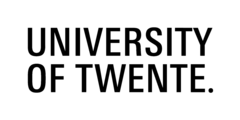Industrial Design Engineering

Žiemos stojimas
2026-02-01
Žiemos stojimas
2025-11-25
Become a ‘designeer’ and enrich people’s lives with new and/or better products while continuously improving the development processes involved.
In your daily life, without realising, you are continuously surrounded by products. But who designed these products? Why are they shaped the way they are? What user demands do they meet, what processes lie behind the development and what technologies are involved in that process? That’s what the Master’s in Industrial Design Engineering (IDE) at the University of Twente (UT) is all about.
Specialisations
Emerging Technology Design (ETD)
Human Technology Relations (HTR)
Management of Product Development (MPD)
This two-year, English-taught Master’s enables you to become a ‘designeer’, an industrial design engineer who does not only know how to design and engineer a (part of a) product, but goes beyond that. With in-depth, scientific insights, you will learn to oversee the whole design and engineering process and know how to continuously develop and improve the products and the processes involved. In the end, it’s about developing products that enrich people’s lives.
Į magistro studijų programas gali stoti visi, baigę universitetą arba besimokantys paskutiniame kurse. Studijos kurias baigei ar tebesimokai turi būti panašios krypties kaip ir tos, į kurias nori stoti, kadangi priėmimas yra paremtas ECTS kreditų suderinamumu.
- ECTS kreditų išrašas - jei dar nesi baigęs aukštosios mokyklos, būtina prisegti ECTS kreditų išrašą, kuriame būtų matyti, kokius dalykus tu mokeisi bei kokius pažymius ir kiek kreditų už juos gavai. Kai siunti anketą paskutiniame kurse, diplomą reikia prisegti vėliau, kai tik jį gausi.
- Bakalauro diplomas – jei jau esi baigęs aukštąją mokyklą, išrašo nereikia, užtenka prie anketos prisegti savo Bakalauro diplomą.
SVARBU! Stojimo mokestis - universitetas taiko 100 EUR stojimo mokestį, kurį privalai susimokėti aplikuodamas į jį (kai atsiųsi stojimo anketą, tau bus paaiškinta kaip tai padaryti). ČIA gali rasti daugiau informacijos apie šį mokestį ir kodėl jis yra taikomas.
Anglų kalbos žinias gali patvirtinti vienu iš šių būdų:
- IELTS – 6.5
- TOEFL – 90
Bachelor of Science (or equivalent) of an engineering based, rather than a design based, industrial design engineering program.
Knowledge of the following topics: Engineering, Design
Portfolio
English summary of thesis (BSc or MSc)
This program has an application fee of 100 euros. You can read more about it HERE.
Traditionally, the job prospects for designers have been closely linked to the overall economic situation. In times of economic growth, graduates were offered jobs even before they had completed the IDE programme.
In a declining economy, it can take longer for graduates to find suitable employment. However, the enormous potential of current new developments (such as smart products, smart environments and portable products) means that new industrial designers are likely to be in great demand. Both government and industry are increasingly convinced that innovation and smart design will play a very important role in the future of our society. The fact that Industrial Design is widening its scope to include services, product-service combinations, the design of environments, the management of product development and brand design also means that this field could soon become less dependent on the state of the economy. In the long run, the influence of design on society looks set to increase, boosting demand for highly educated professionals in this field.
IDE graduates go on to fulfil a range of jobs: industrial designer, product designer, product engineer, design engineer, design manager, product manager, interaction designer, researcher, usability consultant, design-centred researcher, strategic designer, brand manager, new product development project leader, innovation consultant and design-brand consultant.

